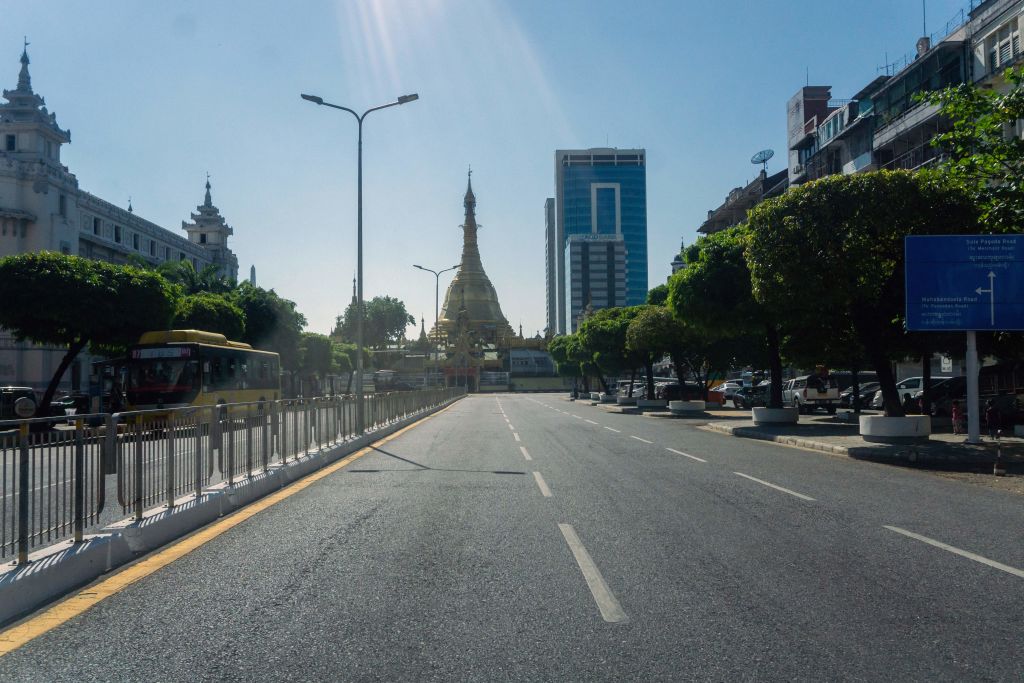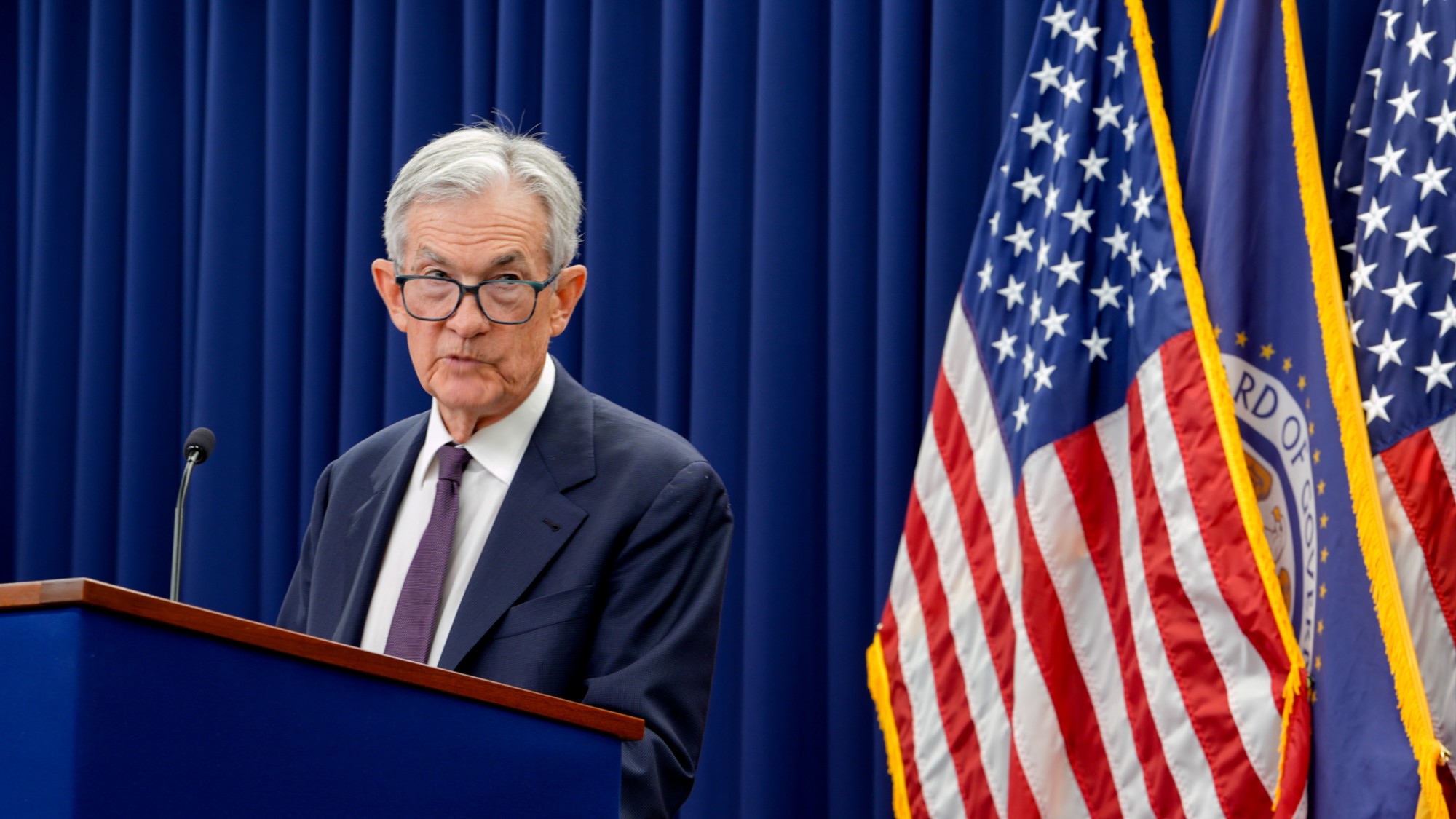Explosion, self-immolation, and 'silent strikes' mark one year since Myanmar coup


Tuesday was the one-year anniversary of Myanmar's military coup, an occasion marked by a lethal explosion, an instance of self-immolation, and "silent strikes" by opponents of the governing junta, Reuters reports.
Those participating in the "silent strikes" remained at home and kept their businesses closed. According to Reuters, authorities warned that such activities could lead to arrest, imprisonment, and seizure of businesses, but the strikes still went forward, leaving streets eerily empty.
Some anti-government demonstrators did take to the streets, throwing red paint on the ground in what may have been intended as a protest against the junta's bloody crackdowns, which killed some 1,500 people in the aftermath of the coup, The Hill reported.
The Week
Escape your echo chamber. Get the facts behind the news, plus analysis from multiple perspectives.

Sign up for The Week's Free Newsletters
From our morning news briefing to a weekly Good News Newsletter, get the best of The Week delivered directly to your inbox.
From our morning news briefing to a weekly Good News Newsletter, get the best of The Week delivered directly to your inbox.
According to Reuters, pro-junta groups also demonstrated to mark the anniversary. At one such gathering in an eastern border town, an explosion killed two people — including one soldier — and wounded 30 others, among them several veterans, local news said. No one has yet claimed responsibility for the explosion.
A man also reportedly set himself on fire in front of an electric company office in the central town of Kyaukpadaung. A local resident told Reuters the man survived but "is in serious condition."
The location he chose for his self-immolation may be linked to Myanmar's frequent power outages, which have grown more common since the coup. Multinational corporations have drawn back from the increasingly authoritarian nation, and several nations, including the United States and United Kingdom, have imposed sanctions on the regime.
The military deposed and arrested democratically elected leader Aung San Suu Kyi last year. In December 2021, she was sentenced to four years in prison and remains on trial for other offenses that, according to Reuters, "carry a combined maximum sentence of more than 150 years."
A free daily email with the biggest news stories of the day – and the best features from TheWeek.com
Grayson Quay was the weekend editor at TheWeek.com. His writing has also been published in National Review, the Pittsburgh Post-Gazette, Modern Age, The American Conservative, The Spectator World, and other outlets. Grayson earned his M.A. from Georgetown University in 2019.
-
 Which way will Trump go on Iran?
Which way will Trump go on Iran?Today’s Big Question Diplomatic talks set to be held in Turkey on Friday, but failure to reach an agreement could have ‘terrible’ global ramifications
-
 High Court action over Cape Verde tourist deaths
High Court action over Cape Verde tourist deathsThe Explainer Holidaymakers sue TUI after gastric illness outbreaks linked to six British deaths
-
 The battle over the Irish language in Northern Ireland
The battle over the Irish language in Northern IrelandUnder the Radar Popularity is soaring across Northern Ireland, but dual-language sign policies agitate division as unionists accuse nationalists of cultural erosion
-
 Trump sues IRS for $10B over tax record leaks
Trump sues IRS for $10B over tax record leaksSpeed Read The president is claiming ‘reputational and financial harm’ from leaks of his tax information between 2018 and 2020
-
 Trump, Senate Democrats reach DHS funding deal
Trump, Senate Democrats reach DHS funding dealSpeed Read The deal will fund most of the government through September and the Department of Homeland Security for two weeks
-
 Fed holds rates steady, bucking Trump pressure
Fed holds rates steady, bucking Trump pressureSpeed Read The Federal Reserve voted to keep its benchmark interest rate unchanged
-
 Judge slams ICE violations amid growing backlash
Judge slams ICE violations amid growing backlashSpeed Read ‘ICE is not a law unto itself,’ said a federal judge after the agency violated at least 96 court orders
-
 Rep. Ilhan Omar attacked with unknown liquid
Rep. Ilhan Omar attacked with unknown liquidSpeed Read This ‘small agitator isn’t going to intimidate me from doing my work’
-
 Democrats pledge Noem impeachment if not fired
Democrats pledge Noem impeachment if not firedSpeed Read Trump is publicly defending the Homeland Security secretary
-
 Is Alex Pretti shooting a turning point for Trump?
Is Alex Pretti shooting a turning point for Trump?Today’s Big Question Death of nurse at the hands of Ice officers could be ‘crucial’ moment for America
-
 Minnesota roiled by arrests of child, church protesters
Minnesota roiled by arrests of child, church protestersSpeed Read A 5-year-old was among those arrested
